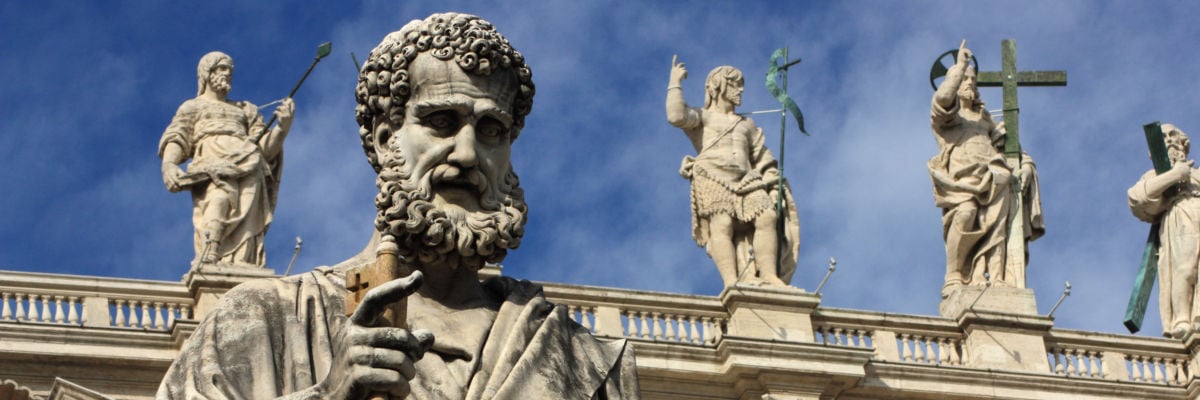
DAY 30
CHALLENGE
“Even if we admit that Peter was leader of the Twelve, and thus of the Church in Jesus’ absence, there’s no reason to infer that his office would be passed on in future generations.”
DEFENSE
The biblical background to Peter’s office—as well as common sense—indicate his leadership function would continue.
When Jesus conferred Peter’s leadership function on him in Matthew 16:18, he said he would give him the keys of the kingdom. This invokes an Old Testament background that informs the nature of Peter’s office. Evangelical scholar F.F. Bruce writes:
And what about the “keys of the kingdom”? The keys of a royal or noble establishment were entrusted to the chief steward or major domo; he carried them on his shoulder in earlier times, and there they served as a badge of the authority entrusted to him. About 700 B.C. an oracle from God announced that this authority in the royal palace in Jerusalem was to be conferred on a man called Eliakim: “I will place on his shoulder the key to the house of David; what he opens no one can shut, and what he shuts no one can open” (Isa. 22:22). So in the new community that Jesus was about to build, Peter would be, so to speak, chief steward (Walter Kaiser, et al., Hard Sayings of the Bible, on Matt. 16:18–19).
Isaiah 22:15–25 involves more than Eliakim. It is a succession passage in which the current chief steward of the house of David—a man named Shebna—is to be replaced by Eliakim. This illustrates the ongoing nature of the office. It was not a temporary one. As long as the house of David endured, kings employed chief stewards to manage affairs on their behalf. This is part of the background to Peter’s office. By appointing Peter the chief steward of the house of the New David, Jesus is instituting an office meant to exist as long as the house of the New David—i.e., the Church—exists.
Common sense also indicates this would be a continuing office. If Jesus deemed that his Church needed a central leader at the very beginning, when it was tiny and organizational demands were small, the need for this office would scarcely evaporate as the Church grew larger and organizational demands increased. The need for a leader would grow, and Jesus foresaw and planned for this.



